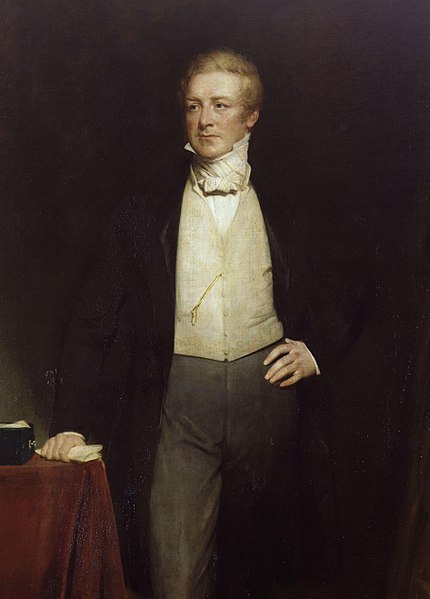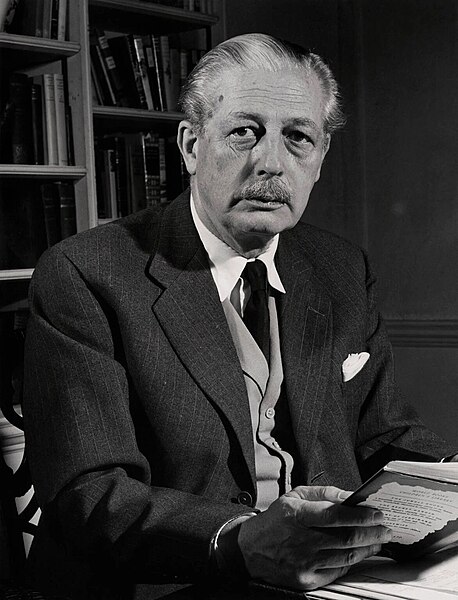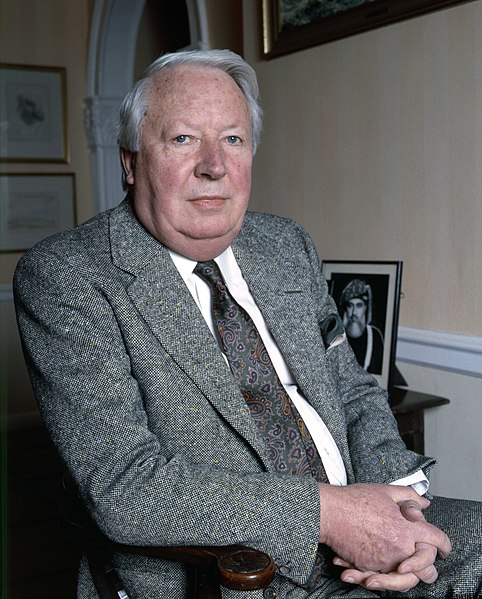Benjamin Disraeli, 1st Earl of Beaconsfield, was a British statesman, Conservative politician and writer who twice served as Prime Minister of the United Kingdom. He played a central role in the creation of the modern Conservative Party, defining its policies and its broad outreach. Disraeli is remembered for his influential voice in world affairs, his political battles with the Liberal Party leader William Ewart Gladstone, and his one-nation conservatism or "Tory democracy". He made the Conservatives the party most identified with the British Empire and military action to expand it, both of which were popular among British voters. He is the only British Prime Minister to have been born Jewish.
1878 portrait
Disraeli as a young man—a retrospective portrayal painted in 1852
Friends and allies of Disraeli in the 1830s: clockwise from top left—Croker, Lyndhurst, Henrietta Sykes and Lady Londonderry
Chair built to carry Disraeli, had he been successful in the by-election. Hughenden collection.
The Conservative and Unionist Party, commonly the Conservative Party and colloquially known as the Tories, is one of the two main political parties in the United Kingdom, along with the Labour Party. It is the current governing party, having won the 2019 general election, and has been the primary governing party in the United Kingdom since 2010. The party sits on the right-wing to centre-right of the political spectrum. It encompasses various ideological factions including one-nation conservatives, Thatcherites, and traditionalist conservatives. The party holds the annual Conservative Party Conference, at which senior Conservative figures promote party policy.
Robert Peel, twice Prime Minister of the United Kingdom and founder of the Conservative Party
Winston Churchill, who was twice Prime Minister of the United Kingdom
Harold Macmillan is closely associated with the post-war settlement.
Edward Heath, Prime Minister of the United Kingdom (1970–1974)







